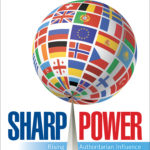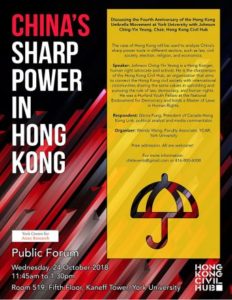 A months-long standoff between Vietnam and China in the South China Sea has finally drawn to a close. RAND’s Derek Grossman takes stock of how Hanoi’s “cooperation and struggle” strategy fared in countering Chinese coercion in the region. Overall, the approach has been lacking, he says. It may be time for Vietnam to consider introducing more “struggle” and less “cooperation” to match an increasingly confident and assertive Beijing, he contends. RTWT
A months-long standoff between Vietnam and China in the South China Sea has finally drawn to a close. RAND’s Derek Grossman takes stock of how Hanoi’s “cooperation and struggle” strategy fared in countering Chinese coercion in the region. Overall, the approach has been lacking, he says. It may be time for Vietnam to consider introducing more “struggle” and less “cooperation” to match an increasingly confident and assertive Beijing, he contends. RTWT
While there’s a consensus in Washington that more must be done to compete with China — especially in Asia — there’s no clear plan. There’s no clarity on how to marshal resources, what trade-offs will be needed and how we will bring others along. In short, there is no strategy, notes Josh Rogin.
 This weekend, the Halifax International Security Forum will convene in Canada to kick off a new effort to fill that gap, he writes for the Post:
This weekend, the Halifax International Security Forum will convene in Canada to kick off a new effort to fill that gap, he writes for the Post:
Halifax Forum President Peter Van Praagh told me the effort will focus on how democracies can come together to confront a rising authoritarian China. …The strategic challenge of a rising China will be the defining test of our time. It will require both cooperation within the community of free nations and — whenever possible — working with not-yet-free countries that face the same threat
“It is no longer a secret that Xi Jinping’s China wants to make the world safe for authoritarianism,” he said. “We need a comprehensive strategy for the United States and its allies that makes the world safe for democracy.”
The US State Department’s Indo-Pacific vision report presents Taiwan as a valuable partner. Even so, Taiwan could have, and should have, had a stronger presence in the report, Michael Mazza writes for the Global Taiwan Institute (HT:FDD).
 A recent Brookings analysis highlights the resilience and inherent wisdom of Taiwan’s democratic model. Similarly, a recent Carnegie report on how social movements make (or fail to make) the protest-to-politics transition cites the 2018 local election as marking Sunflower activists’ absorption “into the institutional arena of party politics” and as a “political sea change [that] indicates the permeability and resilience of Taiwan’s democracy, which was able to incorporate its erstwhile radical dissenters into the institutionalized political process, rather than drive them further toward political extremes.”
A recent Brookings analysis highlights the resilience and inherent wisdom of Taiwan’s democratic model. Similarly, a recent Carnegie report on how social movements make (or fail to make) the protest-to-politics transition cites the 2018 local election as marking Sunflower activists’ absorption “into the institutional arena of party politics” and as a “political sea change [that] indicates the permeability and resilience of Taiwan’s democracy, which was able to incorporate its erstwhile radical dissenters into the institutionalized political process, rather than drive them further toward political extremes.”
Taiwan’s economic resilience buttresses its political robustness, analysts suggest. Despite the U.S.-China trade war, Taiwan’s economy has been unusually resilient — a factor that may help incumbent President Tsai Ing-wen’s bid for a second term in January polls.
 A forthcoming book – Taiwan in Dynamic Transition: Nation-building and Democratization by Ryan Dunch and Ashley Esarey – cites Taiwan’s “remarkable transition from authoritarian rule to robust democracy.”
A forthcoming book – Taiwan in Dynamic Transition: Nation-building and Democratization by Ryan Dunch and Ashley Esarey – cites Taiwan’s “remarkable transition from authoritarian rule to robust democracy.”
“Taiwan’s path has important implications for consideration of why political transitions in the aftermath of the Arab Spring sputtered or failed while Taiwan evolved into a stable and prosperous democratic society,” they add. “Taiwan serves as a test case for nation and state building, the formation of national identity, and the emergence of democratic norms in real time.”







